
Quillacollo: The Cultural Heartbeat of Cochabamba
Nestled just west of Cochabamba, Quillacollo is a vibrant neighborhood that offers an immersive glimpse into Bolivia's rich cultural tapestry. Famed for its lively festivals, historical architecture, and warm, welcoming locals, Quillacollo is a must-visit destination for those looking to experience the essence of Bolivian tradition. The centerpiece of Quillacollo is undoubtedly the Basilica of Our Lady of Urkupiña. This stunning church is not just an architectural marvel but also a spiritual hub, drawing thousands of pilgrims each year, especially during the grand festival of Urkupiña in August. This festival is a colorful explosion of music, dance, and religious devotion, providing visitors with an unforgettable cultural experience. Wander through the bustling streets of Quillacollo and you'll find a variety of local markets offering everything from fresh produce to traditional Bolivian crafts. The Mercado Central is a sensory delight, where you can sample local delicacies like salteñas and api. The neighborhood also boasts several charming plazas, perfect for relaxing and soaking in the local atmosphere. Quillacollo's natural beauty is also a draw for tourists. The nearby Tunari National Park offers stunning landscapes and a range of outdoor activities, from hiking to bird watching. Whether you're a nature enthusiast or a history buff, Quillacollo has something to offer every traveler.
Local tips in Quillacollo
- Visit during the Urkupiña Festival in August for a truly immersive cultural experience.
- Try the local delicacies at Mercado Central, especially the salteñas and api.
- Don't miss a visit to the Basilica of Our Lady of Urkupiña, a key spiritual and cultural landmark.
- Plan a day trip to Tunari National Park for hiking and stunning natural views.
- Spend time in the local plazas to relax and observe daily Bolivian life.
Quillacollo: The Cultural Heartbeat of Cochabamba
Nestled just west of Cochabamba, Quillacollo is a vibrant neighborhood that offers an immersive glimpse into Bolivia's rich cultural tapestry. Famed for its lively festivals, historical architecture, and warm, welcoming locals, Quillacollo is a must-visit destination for those looking to experience the essence of Bolivian tradition. The centerpiece of Quillacollo is undoubtedly the Basilica of Our Lady of Urkupiña. This stunning church is not just an architectural marvel but also a spiritual hub, drawing thousands of pilgrims each year, especially during the grand festival of Urkupiña in August. This festival is a colorful explosion of music, dance, and religious devotion, providing visitors with an unforgettable cultural experience. Wander through the bustling streets of Quillacollo and you'll find a variety of local markets offering everything from fresh produce to traditional Bolivian crafts. The Mercado Central is a sensory delight, where you can sample local delicacies like salteñas and api. The neighborhood also boasts several charming plazas, perfect for relaxing and soaking in the local atmosphere. Quillacollo's natural beauty is also a draw for tourists. The nearby Tunari National Park offers stunning landscapes and a range of outdoor activities, from hiking to bird watching. Whether you're a nature enthusiast or a history buff, Quillacollo has something to offer every traveler.
Iconic landmarks you can’t miss
Parque de Aves Agroflori
Explore the beauty of nature and diverse birdlife at Parque de Aves Agroflori in Quillacollo, a serene oasis for nature lovers and families.
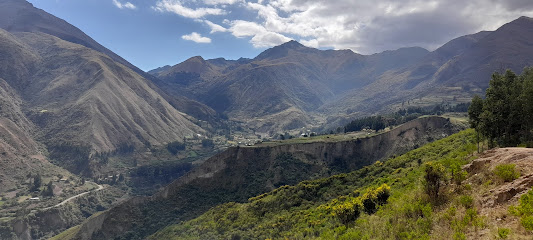
Plaza Bolívar - QUILLACOLLO
Discover the vibrant cultural heart of Quillacollo at Plaza Bolívar, a perfect blend of nature, food, and Bolivian heritage.
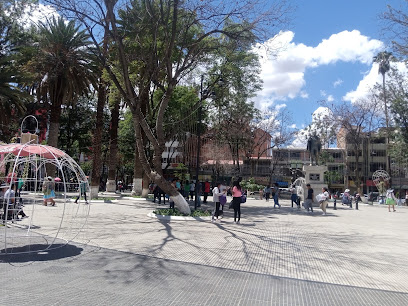
Catedral de San Ildefonso
Explore the breathtaking beauty and spiritual serenity of Catedral de San Ildefonso in Quillacollo, a must-see destination in Bolivia’s vibrant cultural landscape.
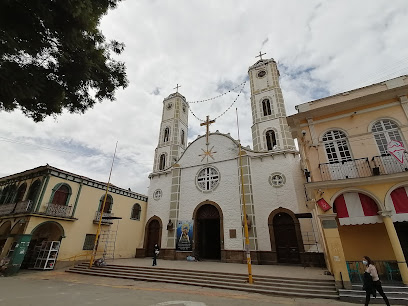
Plaza Principal, 15 de Agosto
Explore Quillacollo's Plaza Principal, a vibrant park that embodies local culture, community life, and natural beauty in the heart of Bolivia.
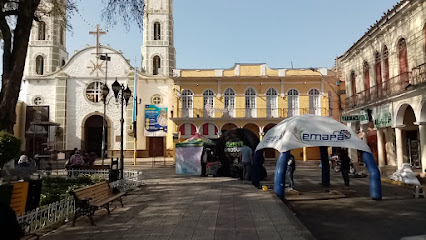
Plaza 6 De Agosto
Explore the vibrant Plaza 6 De Agosto, a scenic park in Quillacollo, Bolivia, perfect for relaxation, cultural events, and authentic local experiences.
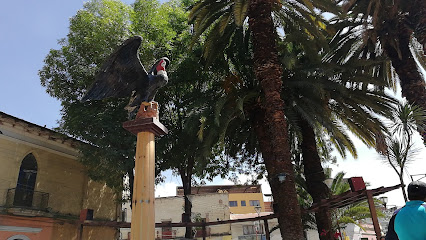
Qolqas De Cotapachi
Discover the captivating beauty and rich cultural heritage of Qolqas De Cotapachi in Quillacollo, Bolivia - a must-see destination for travelers.
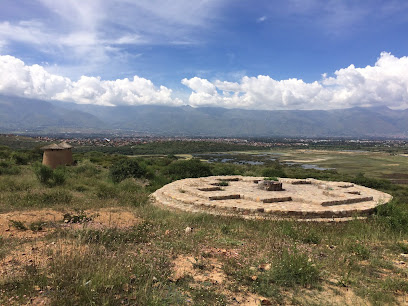
Plaza de la Integración
Experience the lush beauty and cultural vibrancy of Plaza de la Integración in Quillacollo, a tranquil park perfect for relaxation and exploration.
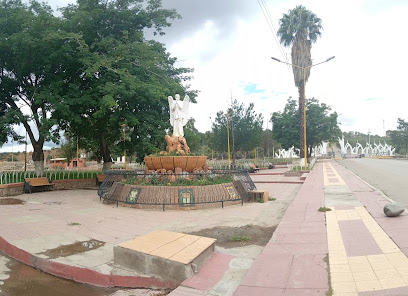
Cerro de Cota
Explore the stunning Cerro de Cota in Quillacollo, Bolivia - a perfect blend of breathtaking views and rich cultural experiences.
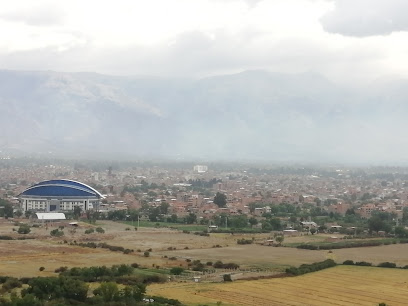
Plaza Turística
Explore the cultural heart of Quillacollo at Plaza Turística, a historical landmark where history and local life come alive.
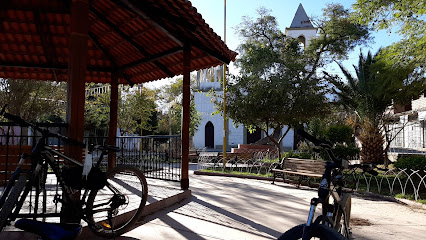
Quillacollo
Discover the rich cultural heritage and breathtaking landscapes of Quillacollo, a charming tourist attraction in Bolivia.
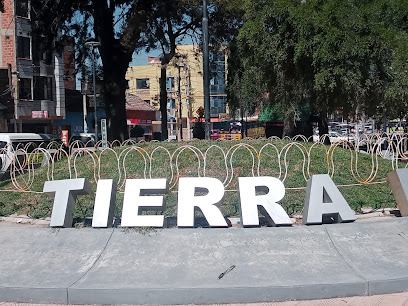
Plaza Bolivar
Experience the vibrant culture and community spirit at Plaza Bolivar, the iconic town square of Quillacollo, Bolivia.
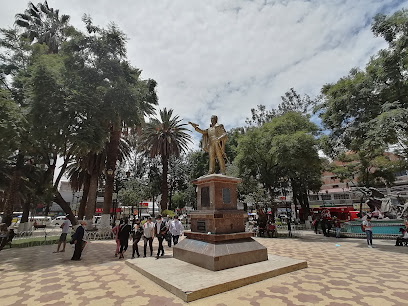
Calle Ayopaya
Explore the historical charm of Calle Ayopaya in Quillacollo, where Bolivia’s cultural heritage comes alive through its architecture and vibrant local life.

Unmissable attractions to see
Familia Park
Explore the lush landscapes and family-friendly activities at Familia Park, a must-visit destination for nature lovers in Cochabamba.
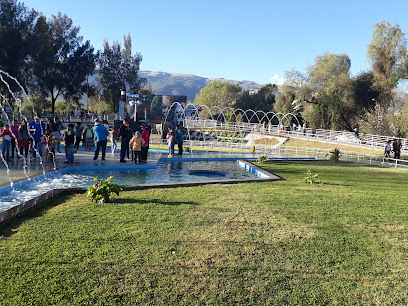
Parque Mariscal Santa Cruz
Explore the natural beauty and cultural vibrancy of Parque Mariscal Santa Cruz, a serene park in the heart of Cochabamba, Bolivia.
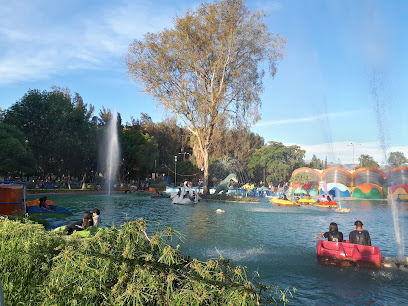
Flags Plaza
Experience the vibrant spirit of Cochabamba at Flags Plaza, where culture, community, and colorful flags unite in a captivating tourist attraction.
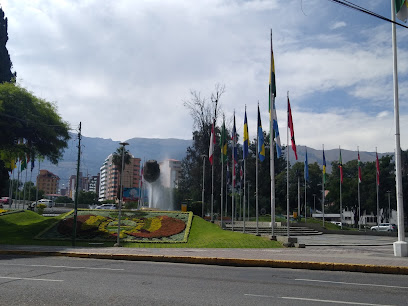
Parque de Aves Agroflori
Explore Parque de Aves Agroflori in Quillacollo for an unforgettable encounter with Bolivia's exotic bird species in a lush, natural setting.
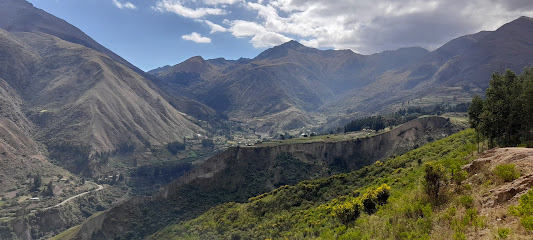
Plaza de las Sirenas
Explore the natural beauty and cultural vibrancy of Plaza de las Sirenas, a serene park in Quillacollo perfect for relaxation and community engagement.
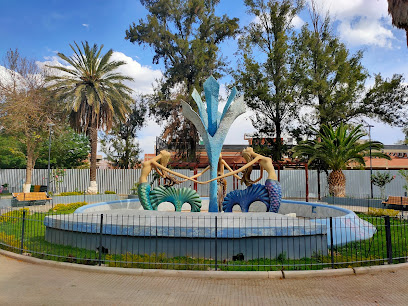
Plaza Bolívar - QUILLACOLLO
Explore the vibrant Plaza Bolívar in Quillacollo, a cultural hub filled with lush gardens, local events, and authentic Bolivian experiences.
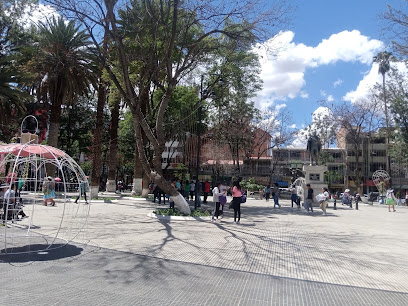
Infantil Prado Villa Moderna Park
Explore the beauty and tranquility of Infantil Prado Villa Moderna Park in Quillacollo, a perfect family-friendly escape amidst nature's charm.
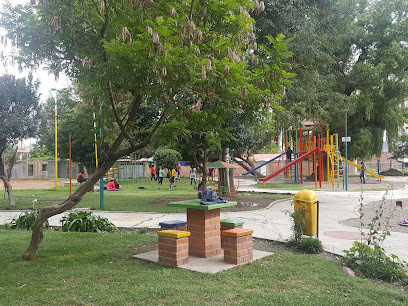
Plaza 6 De Agosto
Experience the vibrant culture and community spirit at Plaza 6 De Agosto, the heart of Quillacollo, Bolivia, where nature meets tradition.
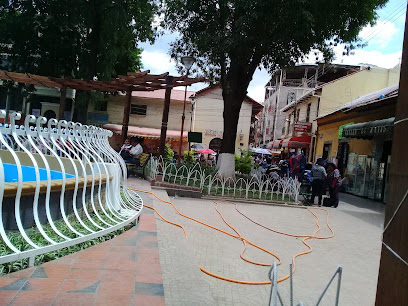
Acuaventura
Experience thrilling rides and family fun at Acuaventura, the ultimate amusement park in Quillacollo, blending excitement with stunning natural scenery.
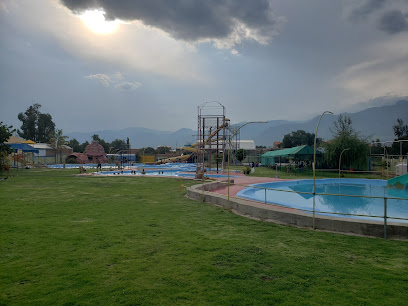
Qolqas De Cotapachi
Experience the stunning landscapes and rich cultural heritage at Qolqas De Cotapachi, a must-visit tourist attraction near Quillacollo, Bolivia.
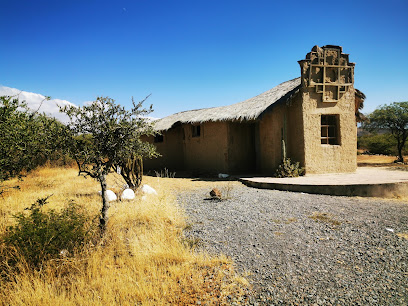
Cerro de Cota
Discover the natural beauty of Cerro de Cota in Quillacollo, Bolivia, offering stunning views, cultural insights, and a peaceful retreat.
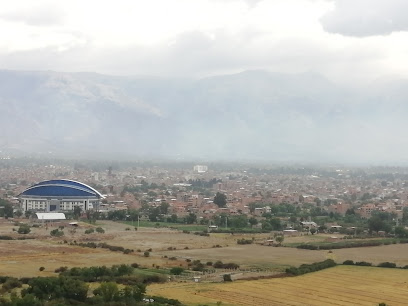
POTRERO CENTRO CULTURAL SUMAJ
Explore the vibrant culture of Bolivia at Potrero Centro Cultural Sumaj in Quillacollo, where art, music, and tradition come alive.
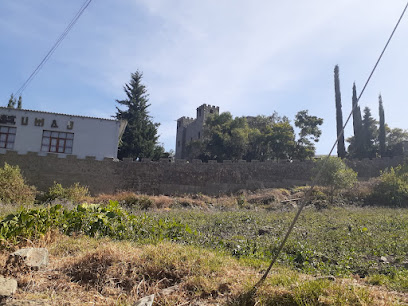
Quillacollo
Explore Quillacollo, Bolivia: A vibrant town rich in culture, history, and stunning landscapes waiting to be discovered by adventurous travelers.
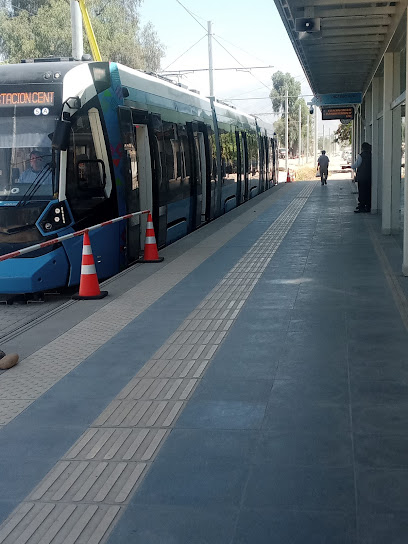
Essential places to dine
La Cabaña Del Cazador
Discover authentic Bolivian flavors at La Cabaña Del Cazador in Quillacollo - a culinary gem offering delicious local cuisine.
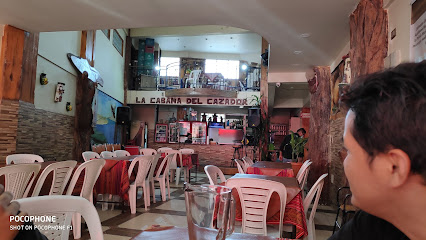
Campo Verde Huayruro
Experience authentic Bolivian cuisine at Campo Verde Huayruro in Quillacollo - where local flavors meet warm hospitality.
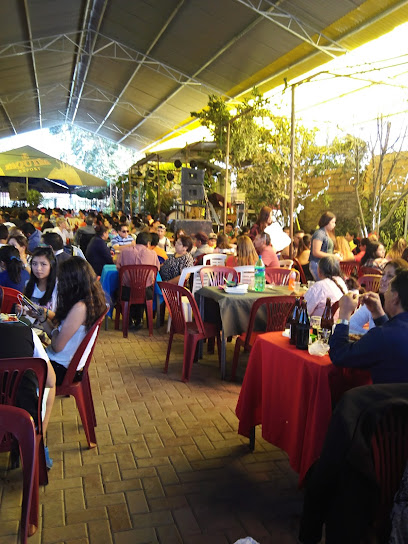
Ch'iji Restaurant
Discover the flavors of Bolivia at Ch'iji Restaurant in Quillacollo - where local tastes meet international delights in a beautiful garden setting.
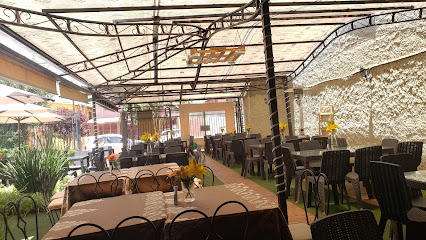
Viva Vinto
Experience the vibrant flavors of Bolivia at Viva Vinto – where tradition meets culinary excellence in Quillacollo.
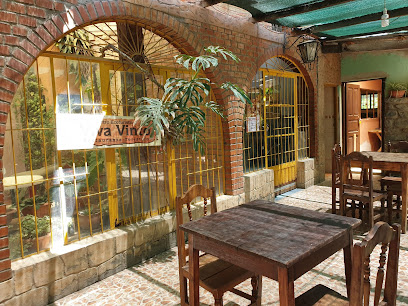
QUINTA CHERNOBYL
Savor authentic Bolivian flavors at Quinta Chernobyl, where delicious grilled dishes meet warm hospitality in Quillacollo.
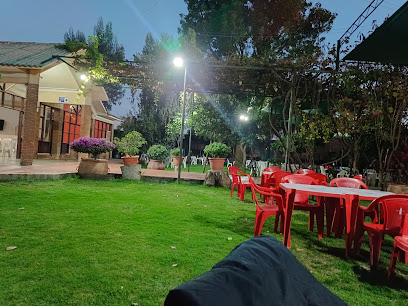
Pablos Chop Restaurante
Discover authentic Bolivian flavors at Pablos Chop Restaurante in Quillacollo—where every dish tells a story!
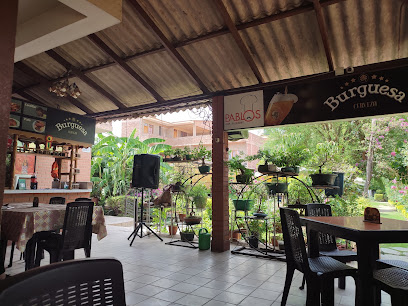
GHOA RESTAURANTE
Experience authentic Bolivian flavors at Ghoa Restaurante in Cochabamba - a delightful dining destination blending tradition with modern flair.
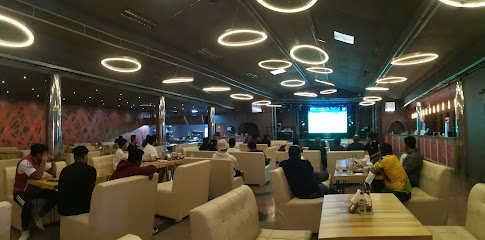
Restaurant Las Americas
Experience authentic South American cuisine at Restaurant Las Americas in Quillacollo – where every dish tells a story.
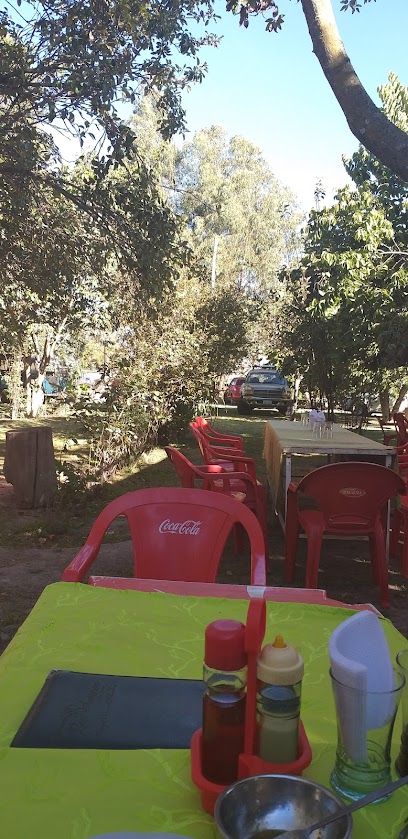
Pely's - Patio de Comidas
Experience authentic Bolivian cuisine at Pely's - Patio de Comidas in Quillacollo, where every dish tells a story.
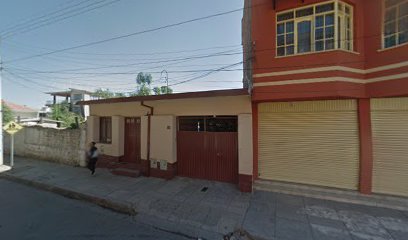
Dalesi D'i ...un lugar de sabores!!!
Experience authentic Bolivian flavors at Dalesi D'i in Quillacollo - where every dish tells a story!
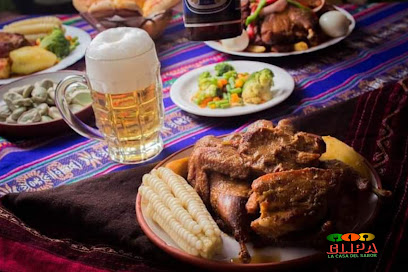
Markets, malls and hidden boutiques
Shoping Cafergu
Explore Shopping Cafergu in Quillacollo, Bolivia – where modern shopping meets local charm in a vibrant retail environment.
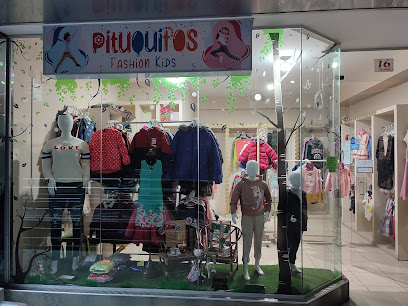
Geek Store Bolivia - Computadoras - Accesorios y Reparación de Computadoras Gamer
Discover the ultimate destination for gamers and tech lovers at Geek Store Bolivia in Cochabamba, offering top-tier computers and accessories.
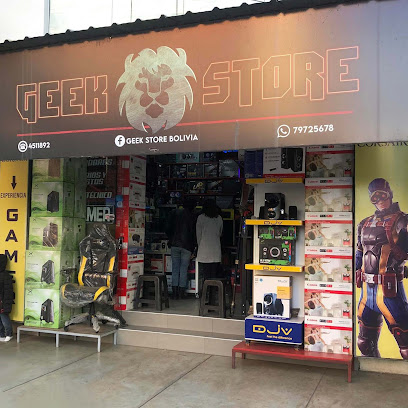
SAMERZ ALFOMBRAS - Suc 1. Angostura
Explore SAMERZ ALFOMBRAS in Cochabamba for exquisite handmade rugs that embody Bolivian culture and artistry, perfect for any home decor.
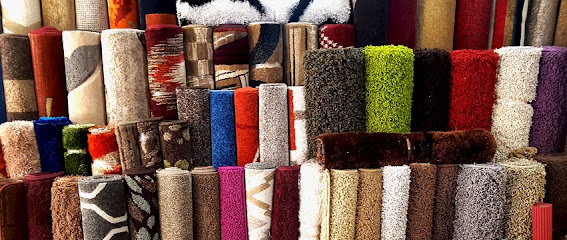
SOLTEX
Discover the festive charm of SOLTEX in Cochabamba, where Christmas spirit meets artisan craftsmanship in a vibrant shopping experience.
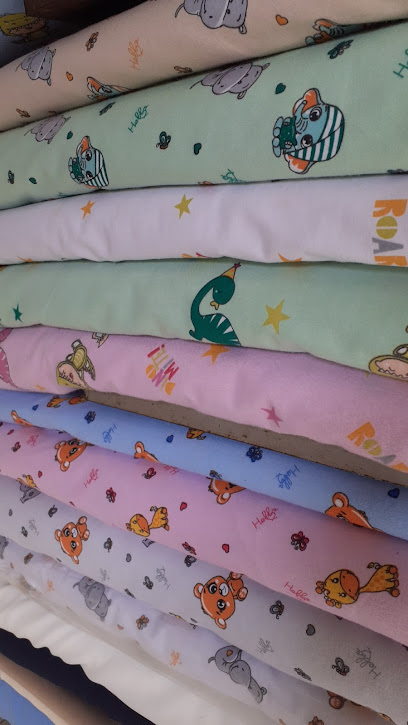
Tienda Comercial
Explore the vibrant Tienda Comercial in Quillacollo for unique local crafts and delicious Bolivian snacks, a true reflection of the region's cultural richness.
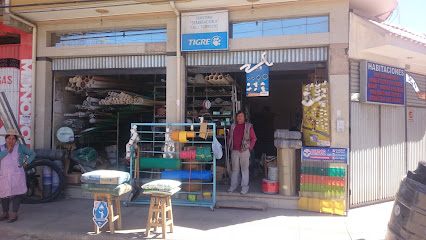
Baby star Cbba
Discover Baby Star Cbba in Quillacollo, Bolivia - the ultimate destination for all your baby needs with a wide range of quality products.
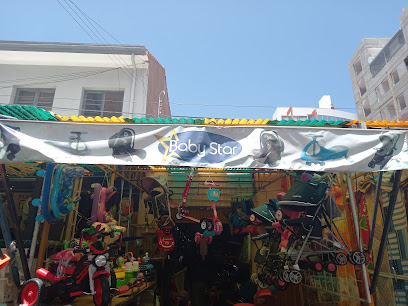
Bela boutique
Explore Bela Boutique in Quillacollo for unique women's fashion that combines local culture with contemporary style, perfect for every occasion.
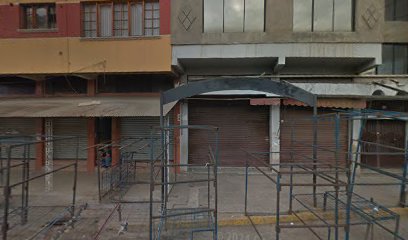
Óculos Concepción
Discover stylish sunglasses at Óculos Concepción in Quillacollo, where quality meets affordability for your perfect travel accessory.

MAJU BOLIVIA
Discover trendy youth fashion at MAJU BOLIVIA in MARISIO, where style meets creativity and vibrant apparel awaits.
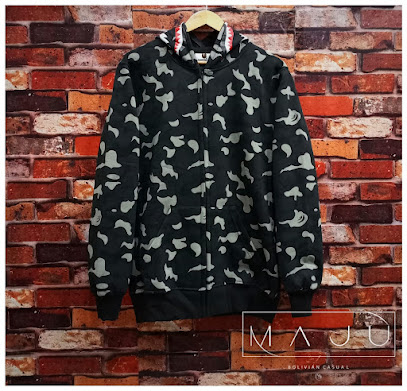
OFII CENTER
Explore the exquisite furniture collection at OFII Center in Quillacollo, Cochabamba, where tradition meets modern elegance.
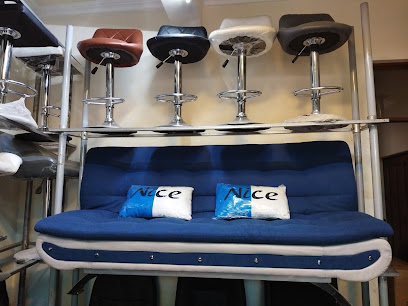
Essential bars & hidden hideouts
QuirQuiña
Experience the vibrant nightlife at QuirQuiña, a lively bar in Quillacollo offering a taste of local culture and a diverse drink selection.
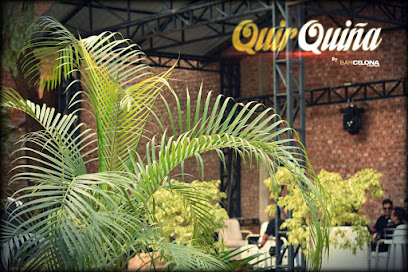
BarbaroBAR
Experience the vibrant nightlife of Quillacollo at BarbaroBAR, where eclectic drinks and a lively atmosphere await every visitor.
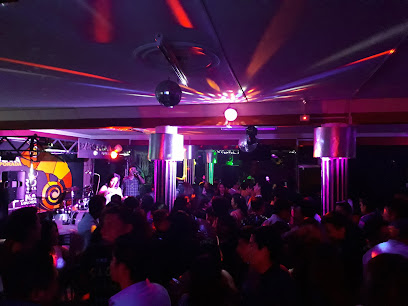
Wonder Bar
Discover the vibrant Wonder Bar in Villazon, Quillacollo, where delicious food meets live rock music in a lively, welcoming atmosphere.
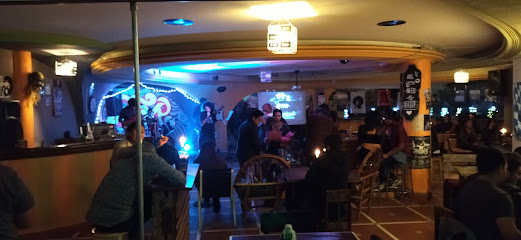
MOES Bar Quillacollo
Discover the vibrant atmosphere at MOES Bar Quillacollo, where delicious food meets lively nightlife in the heart of Bolivia.
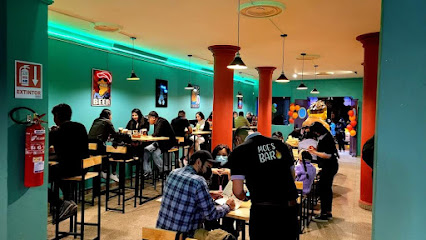
La Previa Bar
Discover the lively ambiance and delicious offerings at La Previa Bar in Quillacollo, the perfect spot for nightlife and culinary adventures.
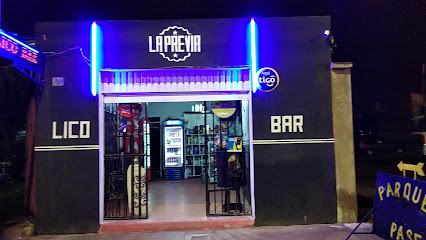
Havana night bar
Discover the lively spirit of Quillacollo at Havana Night Bar, where local flavors and vibrant nightlife come together for an unforgettable experience.
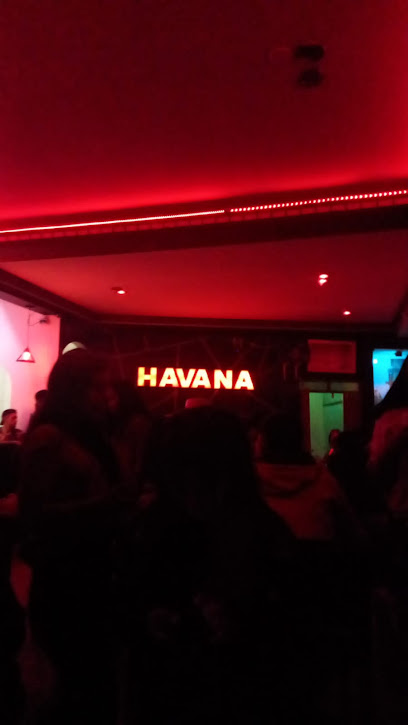
SOCCER BAR
Dive into the vibrant atmosphere of SOCCER BAR in Quillacollo, where soccer fans unite to celebrate the beautiful game with great drinks and good company.
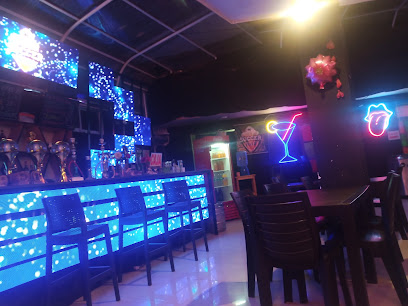
Clandestina SN
Experience the vibrant nightlife at Clandestina SN, a charming bar in Quillacollo offering delicious drinks and local snacks in a welcoming atmosphere.

Extasis Karaoke Bar
Experience the vibrant nightlife of Quillacollo at Extasis Karaoke Bar, where music and fun blend in perfect harmony for an unforgettable evening.
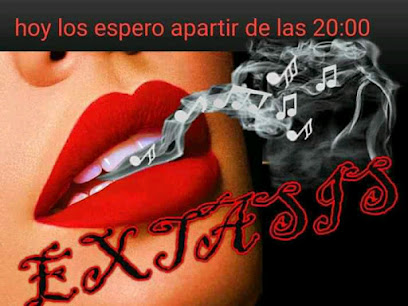
k'ochala
Discover the lively charm of k'ochala, a vibrant bar in Quillacollo serving local drinks and a welcoming atmosphere that embodies Bolivian culture.
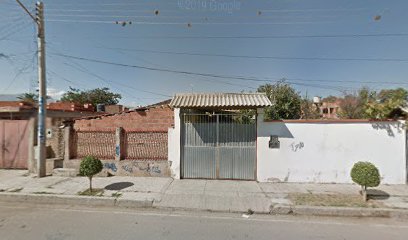
BEER ZONE
Discover the lively Beer Zone in Quillacollo, where local brews, delicious snacks, and a vibrant atmosphere create unforgettable nightlife experiences.
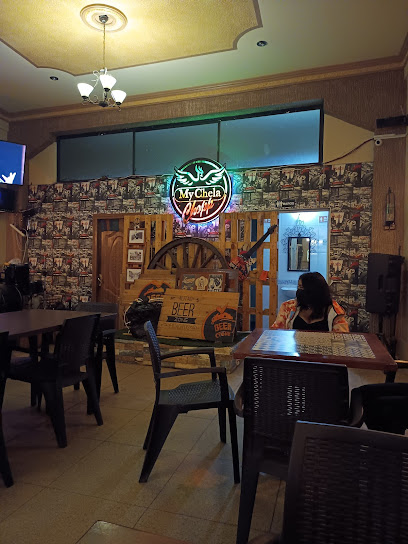
LICORERIA NIKY'S
Discover the vibrant atmosphere of Licoreria Niky's, a lively bar in Quillacollo offering a taste of local culture and delicious drinks.
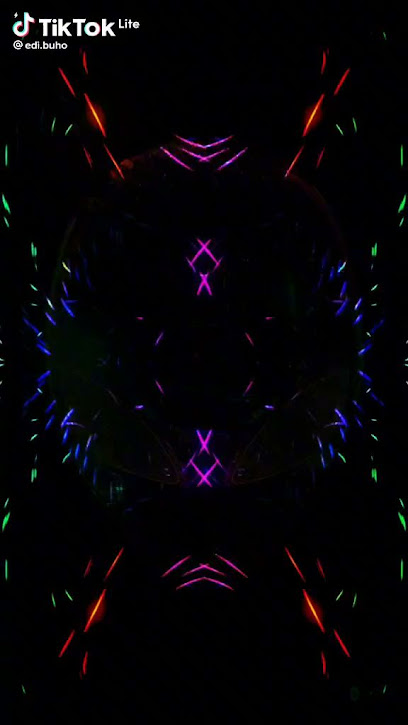
MEU BOTECO BAR
Discover the lively MEU BOTECO BAR in Quillacollo, where local flavors and vibrant ambiance create an unforgettable Bolivian bar experience.
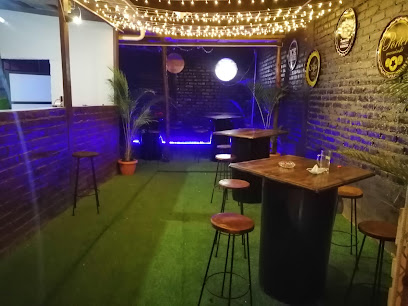
Licoreria MONET
Discover the lively atmosphere and local flavors at Licoreria MONET, a must-visit bar in the heart of Quillacollo, perfect for nightlife enthusiasts.
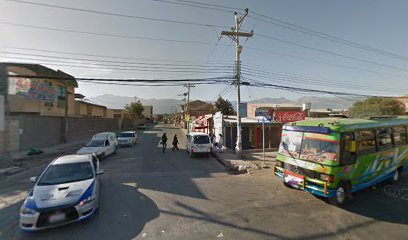
Local Phrases
-
- Hello¡Hola!
[O-la] - Goodbye¡Adiós!
[A-di-os] - Yes¡Sí!
[See] - No¡No!
[No] - Please/You're welcomePor favor/De nada
[Por fa-vor/De na-da] - Thank you¡Gracias!
[Gra-cias] - Excuse me/SorryDisculpe/Lo siento
[Dis-cul-pe/Lo sien-to] - How are you?¿Cómo estás?
[Co-mo es-tas] - Fine. And you?Bien. ¿Y tú?
[Byen. Ee too] - Do you speak English?¿Hablas inglés?
[A-blas in-gles] - I don't understandNo entiendo
[No en-tien-do]
- Hello¡Hola!
-
- I'd like to see the menu, pleaseMe gustaría ver el menú, por favor
[Me gus-ta-ria ver el me-nu, por fa-vor] - I don't eat meatNo como carne
[No co-mo car-ne] - Cheers!¡Salud!
[Sa-lud] - I would like to pay, pleaseMe gustaría pagar, por favor
[Me gus-ta-ria pa-gar, por fa-vor]
- I'd like to see the menu, pleaseMe gustaría ver el menú, por favor
-
- Help!¡Ayuda!
[Ayuda] - Go away!¡Vete!
[Ve-te] - Call the Police!¡Llama a la Policía!
[Ya-ma a la Po-li-cia] - Call a doctor!¡Llama a un doctor!
[Ya-ma a un doc-tor] - I'm lostEstoy perdido
[Es-toy per-di-do] - I'm illEstoy enfermo
[Es-toy en-fer-mo]
- Help!¡Ayuda!
-
- I'd like to buy...Me gustaría comprar...
[Me gus-ta-ria com-prar] - I'm just lookingSolo estoy mirando
[So-lo es-toy mi-ran-do] - How much is it?¿Cuánto cuesta?
[Cuan-to cues-ta] - That's too expensiveEso es muy caro
[E-so es mui ca-ro] - Can you lower the price?¿Puede bajar el precio?
[Pue-de ba-jar el pre-cio]
- I'd like to buy...Me gustaría comprar...
-
- What time is it?¿Qué hora es?
[Ke o-ra es] - It's one o'clockEs la una
[Es la u-na] - Half past (10)Las diez y media
[Las diez ee me-dia] - MorningMañana
[Ma-ña-na] - AfternoonTarde
[Tar-de] - EveningNoche
[No-che] - YesterdayAyer
[A-yer] - TodayHoy
[Oy] - TomorrowMañana
[Ma-ña-na] - 1Uno
[U-no] - 2Dos
[Dos] - 3Tres
[Tres] - 4Cuatro
[Cua-tro] - 5Cinco
[Cin-co] - 6Seis
[Seis] - 7Siete
[Siete] - 8Ocho
[O-cho] - 9Nueve
[Nue-ve] - 10Diez
[Diez]
- What time is it?¿Qué hora es?
-
- Where's a/the...?¿Dónde está...?
[Don-de es-ta] - What's the address?¿Cuál es la dirección?
[Cual es la di-rec-cion] - Can you show me (on the map)?¿Puedes mostrarme (en el mapa)?
[Pue-des mos-trar-me (en el ma-pa)] - When's the next (bus)?¿Cuándo es el próximo (autobús)?
[Cuan-do es el pro-xi-mo (au-to-bus)] - A ticket (to ....)Un boleto (para ....)
[Un bo-le-to (pa-ra)]
- Where's a/the...?¿Dónde está...?
History of Quillacollo
-
Quillacollo's history begins with the presence of indigenous cultures, notably the Tiwanaku civilization around 500 AD. The region was characterized by advanced agricultural techniques and a complex social structure, laying the foundation for future societies in the Cochabamba valley.
-
The arrival of Spanish conquistadors in the 16th century marked a significant turning point for Quillacollo. The area became part of the Spanish colonial empire, leading to the establishment of new agricultural practices and the introduction of European crops. The colonial architecture, including the Church of Quillacollo, reflects this period's cultural amalgamation.
-
One of the most important cultural events in Quillacollo is the Festival of the Virgin of Urkupiña, celebrated every August. Originating in the late 19th century, it commemorates a local legend and has evolved into a vibrant expression of faith and cultural identity, drawing thousands of pilgrims and tourists to the region.
-
The 20th century saw significant economic changes in Quillacollo, particularly with the growth of agriculture and local crafts. The introduction of modern irrigation techniques and the expansion of markets helped elevate the local economy, making Quillacollo a vital agricultural hub within the Cochabamba region.
-
In the late 20th and early 21st centuries, Quillacollo experienced rapid urbanization, leading to the expansion of residential areas and infrastructure. However, this growth has also brought challenges such as environmental concerns and the need for sustainable development. Efforts are ongoing to balance modernization with the preservation of Quillacollo's rich cultural heritage.
Quillacollo Essentials
-
Quillacollo is located approximately 10 kilometers from the center of Cochabamba. To reach Quillacollo, you can take a taxi or a minibus (micro) from the city center, which typically takes around 20-30 minutes depending on traffic. Buses heading to Quillacollo are frequent and leave from various points in Cochabamba, particularly near the main bus terminal. If you prefer, you can also rent a car for more flexibility.
-
Quillacollo is accessible by public transport, including buses and micros that frequently run throughout the neighborhood. Taxis are readily available and can be hailed on the street or ordered via phone. For those interested in cycling, renting a bicycle can be a great way to explore the area, as the terrain is generally flat. Walking is also a feasible option for exploring nearby attractions.
-
Quillacollo is generally safe for tourists, but it is advisable to remain vigilant. Areas near the main bus terminal and markets can be crowded, so keep an eye on your belongings. It’s best to avoid walking alone at night in less populated areas. Crime rates for petty theft can be higher in certain neighborhoods, so it’s wise to research specific areas or ask locals for advice on where to avoid.
-
In case of an emergency, dial 110 for police assistance or 118 for medical emergencies. There are local clinics and hospitals in Quillacollo, but it is recommended to have travel insurance that covers medical emergencies. For minor health issues, pharmacies are available throughout the neighborhood. Always have the contact information of your embassy or consulate handy.
-
Fashion: Do dress modestly, especially in religious and rural areas. Avoid wearing flashy jewelry. Religion: Do respect local customs, particularly when visiting churches. It's polite to cover your shoulders and knees. Public Transport: Do give your seat to the elderly and pregnant women. Don't eat or drink on public transportation. Greetings: Do greet locals with a handshake and a smile. Don't forget to say 'Buenos días' (Good morning) or 'Buenas tardes' (Good afternoon). Eating & Drinking: Do try local foods and accept invitations to share meals. Don't waste food, as it is considered disrespectful.
-
To experience Quillacollo like a local, visit the bustling markets, especially the Sunday market, where you can find fresh produce and traditional crafts. Engage with vendors and try local delicacies like salteñas or llajwa. Attend local festivals if possible, as they provide insight into Bolivian culture. Learning a few basic Spanish phrases can be very helpful and appreciated by locals.
Nearby Cities to Quillacollo
-
Things To Do in Sucre
-
Things To Do in La Paz
-
Things To Do in Potosi
-
Things To Do in Copacabana
-
Things To Do in Santa Cruz de la Sierra
-
Things To Do in Uyuni
-
Things To Do in Tacna
-
Things To Do in Puno
-
Things To Do in Arica
-
Things To Do in Tarija
-
Things To Do in Iquique
-
Things To Do in Arequipa
-
Things To Do in San Pedro de Atacama
-
Things To Do in Cusco
-
Things To Do in Antofagasta






